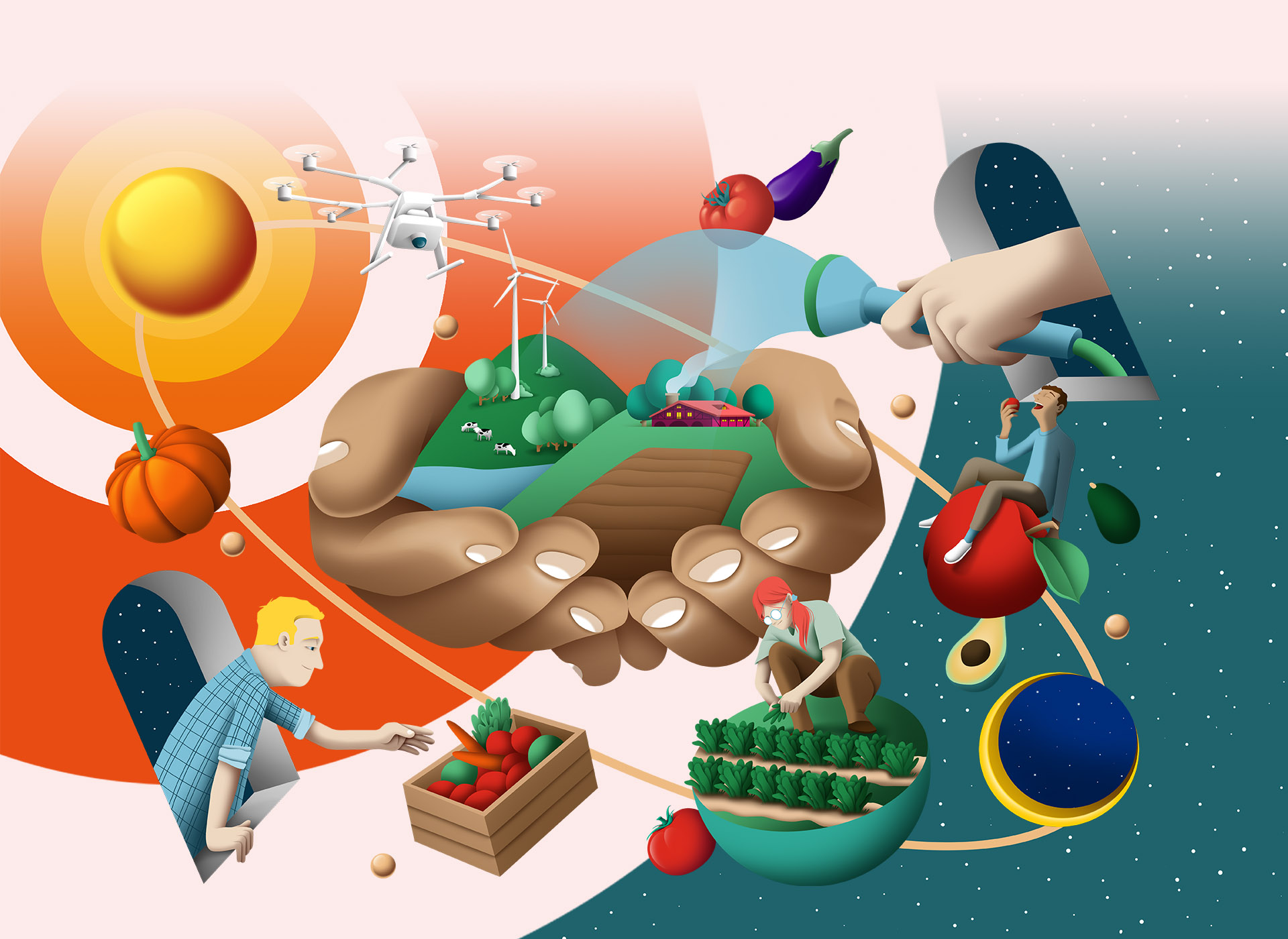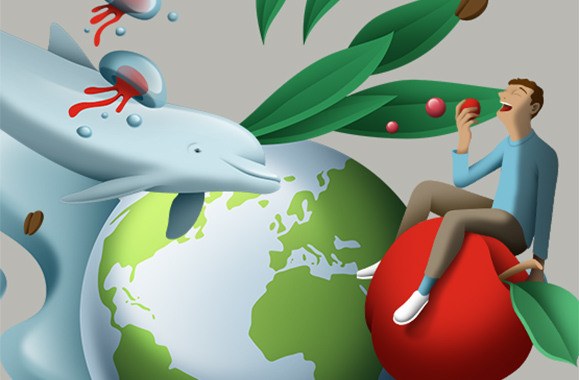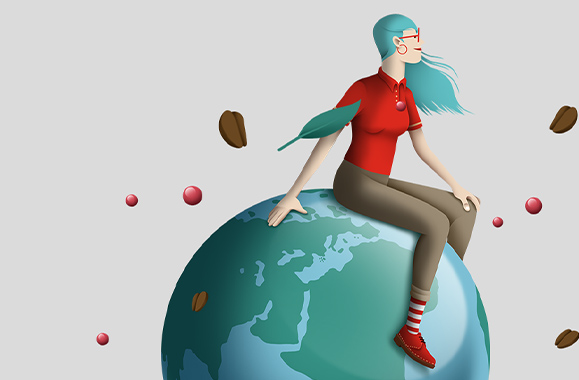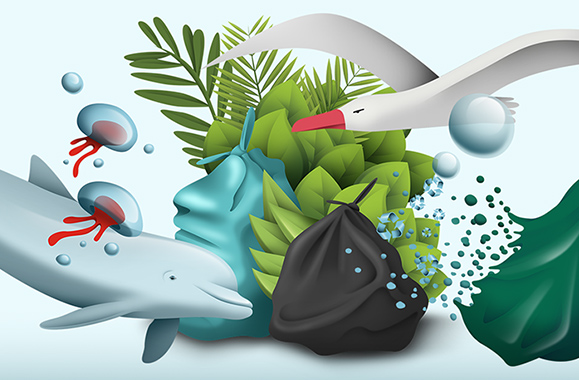Nutrition & Health
PDF DownloadThere can be no sustainable future without a transformation of our diet. What are the necessary steps to achieve this? Which developments need to be observed? Hanni Rützler, Natali Wego and Tanja Wucherpfennig discuss their ideas and opinions.

Hanni Rützler Food is an expression of cultural identity. What we eat is shaped by ethics and morals, but also by history and religion, and varies from country to country. And food culture evolves over time: we love the things we eat frequently and what we’ve known since childhood. Taste and enjoyment are therefore also interpreted and experienced very differently in different regions.
What’s interesting, however, is that despite these different culinary habits, we’re currently experiencing a paradigm shift around the globe: away from the question of how much our food costs to a holistic quality concept. The production and use of food is being discussed in a more emotional and ethical way. We want to know more and are realigning our purchasing behavior.
We are increasingly realizing that we have taken industrialization and globalization too far. We have subordinated food production to the dictates of efficiency. As a result, we have created norms and standards at all levels in order to become even cheaper and even more efficient. This is now leading to significant environmental and social challenges.
If we want to solve these challenges, we need to roll back this level of industrial standardization. We need a food production chain that is still efficient even without such standardization. Which can react more flexibly, encourages diversity – and thus promotes the robustness, resilience and adaptability of companies so they can deal with the multiple crises, in particular the climate crisis, in a more futureoriented manner.

Natali Wego For me, nutrition is closely linked to health and the quality of life. That’s why it’s important that people – regardless of their education level, social class, or cultural background – have access to healthy food and that we move away from factory farming and monocultures in agriculture. We also need a sustainable, ecologically sound, and responsible approach to nutrition. I’m therefore pleased that nutritional issues have become more and more important over the past years.
I think that treating food with respect and learning about its production, transport, storage, and even preparation are the keys to a sustainable future. We need to teach children about nutrition and integrate such topics more strongly into educational programs. At the moment, health and nutrition are rarely discussed in schools. Yet these topics are at least as important as mathematics, German, or history. After all, knowledge about nutrition can prevent many diseases and have a major impact on our lifespan.
However, awareness and education programs will only be successful if they’re not self-righteous and dictate what’s right or wrong. Instead, they need to convey a sense of joy and raise awareness for a balanced and at the same time enjoyable diet.
I believe that government plays too passive a role with regard to nutrition. Structures can often only be changed if the framework conditions are set differently. This doesn’t absolve companies – especially those involved in food production – of their responsibility to also ensure a sustainable future. But companies can’t change the framework conditions and set the right incentives for all stakeholders.

Tanja Wucherpfennig The great thing about nutrition is that it has both a highly emotional and a very rational side. On the one hand, nutrition is pleasure, joy, and passion, and often at the heart of conviviality, dialogue, and social bonding. On the other hand, however, nutrition is also connected with many rational decisions as well as with numerous do’s and don’ts. What’s also nice is that everyone is an expert on the topic, and everyone can influence the future with their behavior.
I don’t think it’s so bad to go overboard with what you eat every now and then – when fun also translates into enjoyment. Nevertheless, nutrition should be closely linked to responsibility. Excessive food waste should make everyone feel uneasy – whether in private households or in industrial processes. As long as there’s hunger in the world, efficiency should not only apply to the production of food, but also to its utilization. We’re far from exhausting the potential we have to reduce food waste. I’m certain there will also be many technological changes in the coming years to enable food to be used more intensively and recycled even more effectively.
There will also be profound change in the coming years with regard to food production: we’ll need to take a close look at the question of how crops are grown in the future. This is because climate change and population development will change many things – from the potential areas for cultivation and irrigation to new foodstuffs and habits. Countless alternative scenarios and developments are already emerging in this regard, such as urban farming, large greenhouses, the production of artificial meat, plantor insect-based foods, and much, much more. I am very confident that research will open up new possibilities and help us to significantly reduce the ecological and social problems caused by our current diet.
Hanni Rützler is a nutritionist and food trend researcher. She is the author of the annual Foodreport published by Zukunftsinstitut-Verlag. / Natali Wego is Senior Consulting Corporate Health Management at the Melitta Group. / Tanja Wucherpfennig is responsible for internal and external communications at the Melitta Group.








